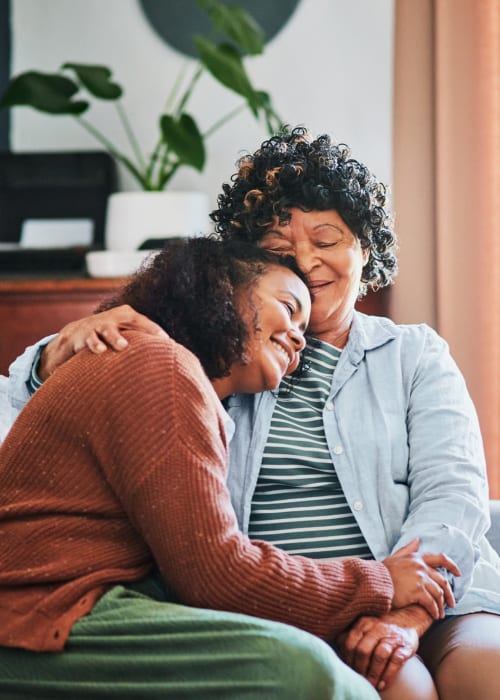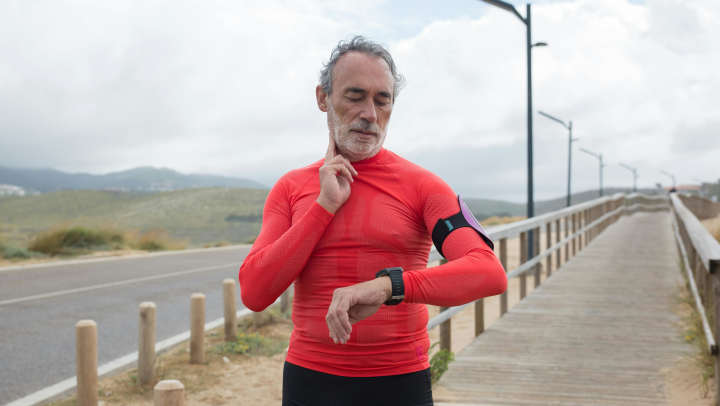Hot Weather Safety Tips for Seniors
Summer 2025 is in full swing. This is the perfect season to get outside and enjoy a variety of summer activities. For seniors, these activities come with a number of benefits to their mental and physical health, yet it also poses a unique set of safety challenges. The heat can add significant risks to outdoor summer activities, especially for older adults. By following a few important safety measures, you can enjoy the season comfortably and safely. The Pillars of Lakeville has provided these summer safety tips for seniors to help make sure our residents have more opportunities to reap the benefits of summer.
Summer Safety Checklist
Prevention and early intervention are the best ways to stay safe and healthy this season. . While heat-related illnesses are the primary concerns as we gear up for an active summer, changes in thermoregulation, current medications and various chronic conditions can also have an impact. Following these safety tips will help you make the most out of our summer amenities and outdoor activities this season.
-
Stay Hydrated: Carry water and stay hydrated, especially on warmer days.
-
Sun Protection: Wear hats, sunglasses, and sunscreen with SPF 30 or higher to protect against UV rays.
-
Comfortable Clothing: Dress in layers and wear comfortable shoes suitable for walking or standing.
-
Buddy System: Enjoy outdoor activities with friends and family or in organized groups for added safety and companionship.
-
Respect Limits: Listen to your body and take breaks as needed. Pace yourself so you can fully enjoy the experience without overexertion.
-
Keep Connected: Sign up to stay informed on local weather alerts, community hot weather advisories, or to request a senior welfare checks
Stay Hydrated
One of the most important measures you can take is staying hydrated in hot weather. Dehydration can sneak up on you, especially for older adults. Drink plenty of water consistently throughout the day and limit excessive amounts of other liquids like soda, caffeine or alcohol because those can contribute to further dehydration. It’s important to note that thirst sensation can diminish with age, making consistent hydration even more vital. Keep a water bottle within reach, set reminders to drink and incorporate hydrating foods like fruits and vegetables.
Wear Sun Protection
Sun protection is one of the most important measures older adults can take to protect themselves from UV rays. Wearing hats, sunglasses, and sunscreen will help shade and protect from harmful rays. A broad-spectrum sunscreen with SPF 30 or higher is best reapplied every two hours, or more often if sweating. Sun exposure can be especially dangerous for seniors. Skin damage from age, increased risks of skin cancer can exacerbate existing conditions. Sunscreen for elderly skin, and UV protection for seniors is key.
Comfortable and Light-Weight Clothing
Additional measures seniors can take include wearing lightweight, loose-fitting clothing in light colors. This helps regulate body temperature and allows sweat to evaporate. It's important to use your best judgment and evaluate the weather to determine how much clothing is appropriate for the temperature. Breathable fabrics like cotton or linen are good for regulating body temperature and light colors are better because they reflect heat.
Form A Buddy System
Outdoor activities are more fun with friends and family or in organized groups — this is also an added safety measure and for companionship. Remember, your buddies can include neighbors, caregivers and community staff. If you are traveling outdoors alone, inform someone where you are going and for how long you will be there. Keep in touch with them and check in regularly. You and your buddy can form a “care pair” that checks in on each other to make sure we all have the most fun possible as safely as possible and with lots of great memories from the day. It’s also a good rule of thumb to bring along a list of emergency contacts, just in case. Visit Our Community page for more programs, events and opportunities to connect with friends and neighbors.
Know and Respect Your Limits
Everyone has different limits when it comes to handling the heat and sun of summer. That’s why it’s important to listen to your body and take breaks as needed. Many common medications like diuretics, antihistamines, some antidepressants and blood pressure medications can affect the body's ability to regulate temperature or increase sensitivity to the sun, so be aware of how any medications might affect you and pace yourself so you can fully enjoy the experience without overexertion. It may be necessary to stay in air-conditioned environments or wait for the cooler times in the day, such as before 10am or after 6pm to begin your activity. During times of peak heat, consider looking into one of our indoor activities listed on Our Amenities page.
Warning Signs & Planning For Emergencies
We hope these tips will help you stay safe during warmer weather, but if an emergency does strike, it’s important to know the signs and how to prepare for an emergency. Heat-related illnesses, such as heat exhaustion and heat stroke, can include symptoms such as dizziness, rapid heartbeat, nausea, confusion, and even fainting. If you begin feeling any of these symptoms, it’s critical to inform someone and move to a cooler place, drink water, and seek medical attention if necessary. If you are in a greater emergency and need medical attention, keep important phone numbers handy, such as your doctor's office and local emergency services. It’s also a good idea to plan ahead and identify a designated cool room or emergency shelter if one's air conditioning fails.
Heat Exhaustion and Heat Stroke are Not the Same
Heat exhaustion is the less severe of the two, with symptoms that include heavy sweating, cold or clammy skin, a fast or weak pulse, nausea, muscle cramps, dizziness, and headache. The best actions to take are to move to a cooler environment, loosen clothing, sip water, and place a cool cloth on the skin. Having an emergency kit for heat exhaustion handy can help seniors prepare for emergencies and can help prevent the onset of full heat stroke symptoms.
Heat Stroke, on the other hand, is an emergency requiring 911. Symptoms include a body temperature over 103°F, red, hot or dry skin with no sweating, rapid or strong pulse, a throbbing headache, dizziness, confusion, and in some instances, unconsciousness. The best recommended actions to take are to call 911 immediately, move to a cooler place and use a fan. Note: DO NOT give fluids to a person with heat stroke.
Safety Is Our Top Priority
We’re committed to supporting you in your journey to remain healthy, active, and enjoying this summer season — while providing safe activities for all. Our activities team offers a variety of organized activities, indoor and outdoor, to foster community and to keep seniors living independently. By following these simple safety tips, seniors can enjoy a safe and comfortable summer while minimizing risks. For other activities for seniors, check out our past blogs for more great ideas!
Find Your Place at Pillars Senior Living in Lakeville, MN
If you’re curious to learn more about what the Pillars Senior Living lifestyle has to offer, request a tour today!


